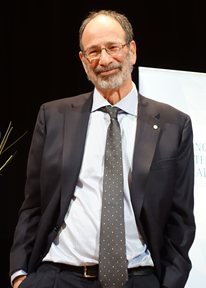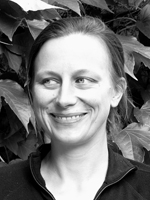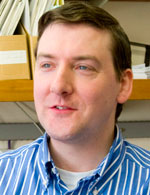Some time ago I blogged about how transactions in tight real estate markets might produce chains (or even cycles) of transactions, in which some owners might have to buy a house before they could vacate theirs (and in slow markets in which some owners might have to sell their house before they could buy one).
It turns out that right now in England, a not-so-rare feature of ads to sell houses is the phrase "No upward chain." What it means, apparently, is that this house is available to be bought/sold right now, without the owner having to wait to buy a new house before closing on the deal.
HT: Brit Grosskopf
Prof Al Roth, Nobel Prize Winner - Guest Lecture
- Location
- Great Hall - Aston Webb Building
- Date(s)
- Monday 4th February 2013 (18:00-19:00)
Who Gets What: The New Economics of Matchmaking and Market Design: A Guest Lecture by Professor Al Roth, 2012 Nobel Prize Winner for Economics, Stanford University, US.
 Recent Nobel Prize Winner, Professor Al Roth provides an open, guest lecture for the University of Birmingham’s College of Social Sciences on Monday 4th February 2013.Described as “an economist who saves lives”, Roth’s application of economics and the idea of “matching algorithm” is enabling a creative use of his research – including life-saving work.His research has been applied to:Kidney Donation Exchange – matching incompatible patient-donor pairs with others, in as wide a network as possible (and no money changing hands)Public Schools – by matching students to high schools based on preferencesMedical Students – matching medics to hospitals where they complete residency programmesProfessor Al Roth will deliver a guest lecture, together with an opportunity to ask questions. Refreshments will also be available after the lecture.Further information:Doors will open at 5.45pm for a prompt 6.00pm start.PLEASE NOTE: Due to the popularity of this event, the lecture will now be taking place in the Great Hall in the Aston Webb Building.If you would like any information about the event please contact Guvinder Kaur Rajaniag.rajania@bham.ac.uk.For live updates from the event, follow the College of Social Sciences’ twitter page@CoSS_Birmingham.
Recent Nobel Prize Winner, Professor Al Roth provides an open, guest lecture for the University of Birmingham’s College of Social Sciences on Monday 4th February 2013.Described as “an economist who saves lives”, Roth’s application of economics and the idea of “matching algorithm” is enabling a creative use of his research – including life-saving work.His research has been applied to:Kidney Donation Exchange – matching incompatible patient-donor pairs with others, in as wide a network as possible (and no money changing hands)Public Schools – by matching students to high schools based on preferencesMedical Students – matching medics to hospitals where they complete residency programmesProfessor Al Roth will deliver a guest lecture, together with an opportunity to ask questions. Refreshments will also be available after the lecture.Further information:Doors will open at 5.45pm for a prompt 6.00pm start.PLEASE NOTE: Due to the popularity of this event, the lecture will now be taking place in the Great Hall in the Aston Webb Building.If you would like any information about the event please contact Guvinder Kaur Rajaniag.rajania@bham.ac.uk.For live updates from the event, follow the College of Social Sciences’ twitter page@CoSS_Birmingham.












